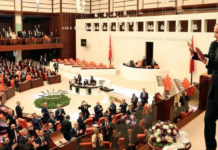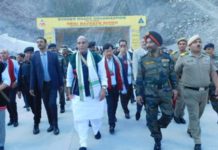After CLAT 2011’s announcement this year, there were only two types of Law School aspirants: Panicky and Happy. The former need a “pep-talk”.
To start with: What did you do? Concentrated on Static, I suppose? Memorized all the capitals, currencies, latitudes, longitudes and possibly, everything. And the newspapers were ignored. They bundled up and well, were sold to the scrap dealer. The past, is well, over. So let’s deal with what has gone wrong and rectify our mistakes. No, its not too late in the day, and you can still catch up.
But first, remember that Current Affairs is essential for Law School. Not knowing the capital of West Bengal, we can afford. But not knowing the party that rules the state: unpardonable. That you are unaware of what’s going on in the world, will result in you forming opinions that are too naive. A doctor or an engineer can afford to have naive opinions, not a lawyer. He must know why the Gurjar’s are blocking railway tracks, because he will one day, defend (or oppose) their plea in court. Law and the day-to-day affairs of the world are too interconnected. Hence, the need to know.
Now, the CLAT committee has done a great job of telling you what exactly is Current Affairs: “broadly, May 2010 to May 2011”. On the first look, this is “awesome” news. It limits your area of study by several notches. But what about “current affairs” that began, say, 10 years back and continued to be relevant during the last 12 months? The POSCO project began way back, but it has continued relevance even today. Similarly, the war in Gaza began in 2008, but it was followed by the slaughter of Humanitarian Aid workers this year, in broader context, we must remember the failed peace process as well.
COP-15 in Denmark was followed by COP-16: Both are relevant and both need to be studied, the latter in detail, the former in lesser detail.
So, no, Current Affairs is a little more wide, but I’ll assure you of this: It is coverable to an extent unimaginable if you’d be doing Static (I mean, seriously, When did Akbar die?). And this section will decide whether you make it to Nalsar or you “invest another year”. I’ll give you tips, and an action plan (if required) for you to crack Current Affairs. But it will require a little more of your time and a lot more of your seriousness.
No Legal GK?
Yes, no legal GK. But then, there is a difficulty: is the Babri judgment “Current GK” or “Legal GK”?. For all purposes that CLAT intends to serve, we must treat it as the former. There are legally relevant occurrences that have socio-economic-political ramifications. Babri, the Women’s Reservation Bill, the Torture Bill, Right to Education Act, 2G Scam and SC’s intervention, etc: all are “legal” and “current”. So don’t chuck headlines with Legal News, but DON’T sit and sift through everything. Just do a reading of them and follow it.
Ditto for Static. Don’t ignore it, but don’t give it a lot of importance. Legal and other incidents that occured before the the bracketed period should take about 10% of your GK-effort.
How do we go about it now?
The two key-words in deciding importance of an issue are: ”relevance” and “possibility”. The former, you’ll have an idea if you have solved past years’ papers, the latter, is a whole lotta guessing and a little bit of experience.
Relevance: Think like a person setting the CLAT this year. The emphasis has been on “awareness”, so, ask yourself: is the name of Australia’s acting second joint secretary’s deputy to the Vice-Minister of Defence and Intelligence of any importance to anyone? Even if he signed a memorandum with his counterpart in India on “improving cultural and civilizational ties in the area of weapon management and torture methods”: It is not important. But it would be relevant if it was Australia’s Prime Minister (the first woman to head the government in the country) was to visit India and sign an agreement on Nuclear Energy (and NOT on Animal Husbandry!). Like I said, you’ll learn it when you’ve solved a few papers. NLU-Delhi’s last year’s paper was a good example of current affairs in general.
Possibility: Is there a possibility of this incident occurring again? Is there a possibility that something else might arise out of it? Let us look at the WikiLeak’s drama. Some disgruntled US State department employee leaked tonnes of cables to this organization, and now the said organization is putting it up on its website: case close? NOT. Assange was arrested (on charges of “surprise sex”), Rahul Gandhi’s advise to Roemer saying “Hindu radicals are a bigger threat than Islamist terror”, etc. The war on Iraq in the premise that the country has Weapons of Mass Destruction. Is that all? But then, there were elections there recently, we’d US and UK troops pulling out of combat duty, then we’d an unstable government coming into place nine months after the elections: there is a certain continuity to a lot of issues, and hence, they need to be followed up and not ignored.
Remember, you need to give Current Affairs time. At least an hour with the newspaper, do it well, in detail. “Solve” it. Because you didn’t read the newspaper since the beginning, you wouldn’t make head or tail of what “Hindu Terror” means, or what the “JPC” is, you will never know what was actually leaked “in Wikileaks”. So, put yourself out of the misery: Google! If you don’t figure it out still, email us at lameness.gk@gmail.com (long story, irrelevant).
Essentially, stop being too happy with yourself. Continue learning.
As for what you have missed from May 2010 to August 2010: we’ll be putting up compendiums. We like spoon-feeding. But they will not be as comprehensive, so visit Pratiyogita Darpan’s website and go through their Panorama.
Two of my older articles already deal with the details of GK prep: click here & here (both deal with what to do and how to do it).
Here is a rough list of what you have to keep an eye for:
- Regime changes, elections. Names of new leaders, political parties they belong to
- Violence in other countries: Wars, Blasts, Failed Terror Attacks. Riots and other such routine stuff in India.
- Nobel Prizes, Magsaysay awards, India’s various prizes: Jnanpith, Swaroop Bhatnagar Prize, Gandhi, Indira Gandhi and Nehru Prizes. Nishan-e-Pakistan, etc. Keep an eye for ANY award that is given to an Indian or a person of Indian origin.
- Political dramas: The Gujjar agitation, the Telangana struggle, etc
- Names of various government initiatives: From the peace talks in the North East, to the interlocutors in Kashmir to NREGA, everything.
- International Agreements, Conferences, Conventions, etc. – And whether India has signed it or not.
- Visits of Indian PM and other leaders to India – and what exactly happened between them.
- Scams – you bet!
- New business chiefs; acquisitions; mergers and significant product launches (Eg., The Tata Nano, the Samsung Guru phone that charges itself with Solar Energy)
- Founders of institutions, organizations, public personalities, etc.
- Important sports events: Who won what? Where was it held? Any new records?
- Defence related news: new missiles, failed missiles, indigenous tanks, etc (Keep an eye on North Korea and Iran: they test missiles all the time!)
- Important days: World Save A Girl Child Day; International Day of the Boy with the iPhone, etc etc, you get the point, don’t you?
- Important people who passed away since CLAT 2010.
- The new largest, biggest, newest, longest, tallest, etc (Jaitapur Nuclear Reactor – what is it going to be soon?)
- People in controversy: Arundhati Roy (Sedition), Rahul Gandhi (Hindu radicals more dangerous than Muslim terrorists), Narendra Modi (evergreen!).
- Important orders that came from the supreme court – just in case!
- New Laws introduced in the parliament, new acts passed and new amendments – again, just in case!
- New controversies: not just scams, but stuff like “paid news”, “pay a riot” (Sri Ram Sene!), etc
- Committees, Commissions and Chairmen: Singhvi (2G), Aftab Alam (P.D. Dinakaran), Srikrishna (Telangana, inter alia), etc
- Various international groupings like the AOSIS, G-20, P-5+1, Arab League; their chiefs, headquarters, etc
- Significant change in regimes’ attitudes: not stoning a woman accused of adultery in Iran, the Dont Ask, Dont Tell policy’s repeal in USA, India talking to rebels in the North East, Blasphemy Laws in Pakistan and the case of Aasia, a Christian woman.
- Infamous natural and man-made disasters: Mt. Merapi,. floods in Venezuela, earthquake in Indonesia, various cyclones that hit various places, etc
- Important arrests, convictions and detentions: Kobad Ghandy, Meghen, Binayak Sen, etc
- India and the world: Its role in COP-16 (ICA), UN Women, UNSC (non-permanent member), UNHRC, etc
This list is obviously not exhaustive, but it covers the more important areas of your study. I’ll try and put a list of “most important” issues to be revised before NLU-D, but don’t count on it. Otherwise, all our compendiums and GK Doses will do the job.
Oh, and here’s GK Compendium – 13
If you are still apprehensive,l and require an “action plan” of sorts, mail us at clatgyan@gmail. Give us information on the following:
– What apart from Current Affairs is your worry?
– How much time are you giving, and how much time can you give to Law School entrance prep everyday?
– Are you taking any coaching/correspondence course?
– What have you done so far in the area of Current Affairs prep? (Newspapers, magazines, etc)
– Dropper/12th?















“is the name of Australia’s acting second joint secretary’s deputy to the Vice-Minister of Defence and Intelligence of any importance to anyone?”
Ha ha ha, the author is so witty.
Thanks again, I seriously needed the pep talk.
now thats comprehensive. thanks! genuinely
Best post evr!
Did Aymen write this?
@ Vishal… Yes, Aymen’s the writer! … Chap has God gifted wittiness! 🙂
the best article by aymen!
Such Posts are aymens speciality.
I was thinking of that actually, of how the CLAT committee could include general questions on COP15, cos it is on some level related to the Cancun summit. Or maybe the Kanishka bombing, or CERN.
I’m waiting for The Hindu’s 2010 summary of events! And yes, boards are around the corner, how much prep time per day is optimum , for CLAT?
Nice! I have mailed you something .Please reply me urgently!
definitely, the most impressive article i`ve ever come across in clatgyan…gotta admit the writer has got a great sense of humour. Thanks for all that advice, will try to follow them religiously. Looking forward to more of this kind of stuff from the writer!!
Aah…Aymen and his fan following!
woahh!! this really helped!
thanks a lot aymen
12th walas: a month before your pre-boards’ prep, you should be comfortable with all the CLAT subjects. Once you start your school studies, pepper CLAT prep here and there.
So, do a few Reasoning questions with tea; finish the paper off while you have your breakfast, when you take a break between two subjects, solve a few Math problems.
The minimum amount of time that you should give CLAT prep should be around 15-16 hours a week